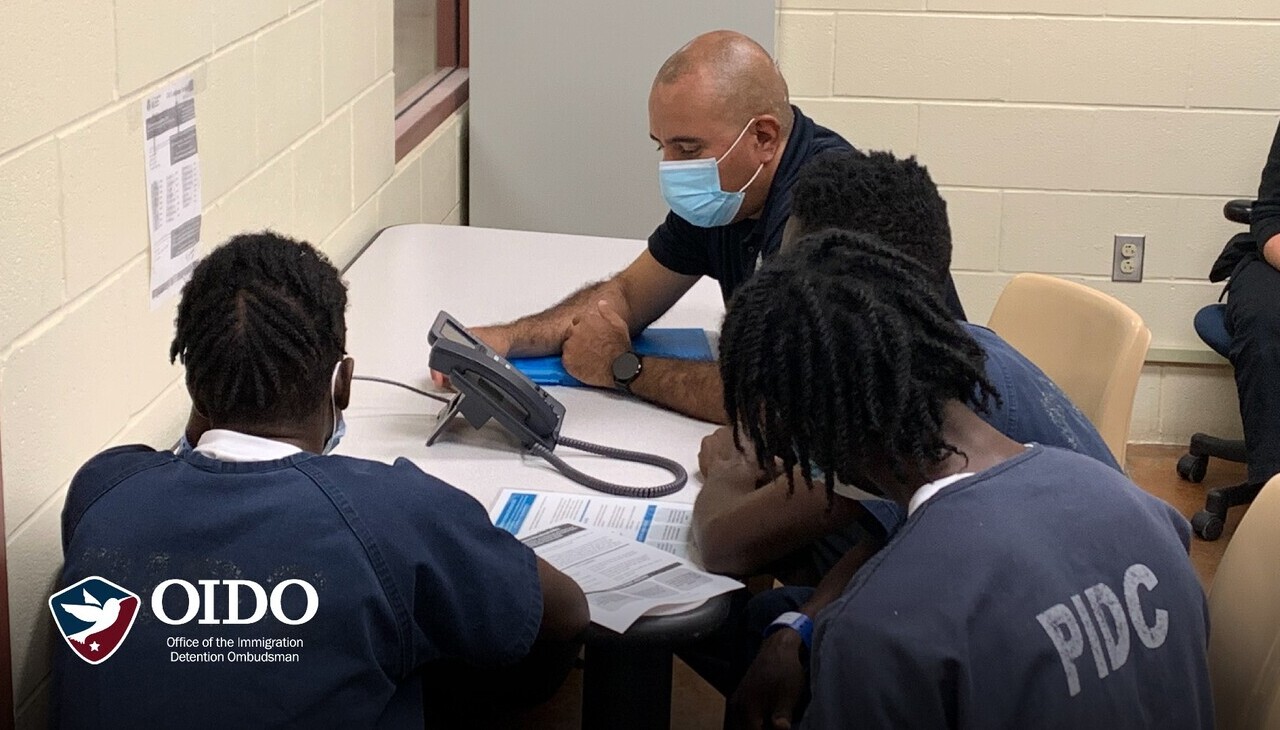
A new office to provide oversight for U.S. detention centers
The new entity investigates complaints about the treatment and conditions of people held in detention.
The Office of the Immigration Detention Ombudsman (OIDO) is a new resource for advocates, legal representatives, and family members of detainees to file complaints about misconduct or poor living conditions in U.S. immigration detention and custody. The new office, established by Congress in 2019, finally began operation this year.
Operating as an independent monitoring service at ICE and CBP facilities, OIDO's support is critical in helping detainees resolve their issues in a timely manner.
The organization supplies case managers and detention supervision investigators who look into detention issues and can recommend solutions to complaints about the treatment of detainees and the conditions of the facilities they visit.
David Gersten, acting Immigration Detention Ombudsman, stated:
Our mission involves assessing individual complaints, conducting announced and unannounced inspections, reviewing detention contracts, and carrying out studies and surveys on trends in immigration detention to report to the DHS Secretary, ICE, CBP, and Congress.
Support for detained migrants
Created by Congress in 2019, OIDO investigates complaints about treatment and conditions at detention centers that hold people in federal immigration custody, while providing constant oversight to ensure the facilities comply with the law and standards for detention.
The organization operates as an independent office within the U.S. Department of Homeland Security (DHS) separate from Immigration and Customs Enforcement (ICE) and Customs, and Border Protection (CBP).
“Our unique role distinguishes OIDO as an important and objective conduit of information regarding immigration detention for policymakers and the public,” added Gersten.
The office's intake form, DHS Form 405, allows people who have been detained, or their representatives, to file confidential complaints about treatment and conditions in immigration detention centers.
¿Sabía que el programa Alternativas a la Detención utiliza tres tipos de tecnologías para garantizar cumplimiento con condiciones de liberación? pic.twitter.com/mAqo9Hkge0
— ICE en Español (@ICEespanol) February 2, 2023
Problems to report include:
RELATED CONTENT
- Staff misconduct
- Inappropriate medical treatment
- Bathrooms or rest areas in poor condition
- Lack of access to a lawyer
- Irregular security conditions that could cause harm to detainees
Likewise, one of the most outstanding tasks of OIDO is to offer accessibility for detainees in the facilities and their families online, providing information and resources, including complaint forms in several languages and in a simple manner.
“The staff of OIDO embody passion for and are trained in immigration, civil detention care and custody, and protecting the rights of individuals in immigration detention. We are committed to serving as a trusted and neutral resource for the community of detainees and their advocates as we collectively work to create a more safe and humane immigration detention system,” said Gersten.
Constant work
Although the office does not have powers to deal with issues related to releasing detainees, community supervision, alternatives to detention, immigration status or asylum applications, it is responsible for raising awareness about its purpose and activities, building a cooperative network of stakeholders.
OIDO notes that its complaint system, designed to complement existing oversight functions within DHS, is not intended to replace existing processes within detention centers, but offer an additional line of support to move a complaint toward resolution.
The results of an OIDO inspection do not affect the status of a detainee's immigration case positively or negatively.
Working together
OIDO, which recognizes the benefits of partnering with ICE and CBP to ensure their recommendations to improve detention center conditions, has team members working with CBP's Joint Intake Center to review complaints filed with respect to that agency to ensure responsiveness and impartiality.
It also coordinates with the DHS Office for Civil Rights and Civil Liberties, the Office of the Inspector General, and the Offices of Professional Responsibility, necessary components to facilitate the proper handling of matters within their respective areas of responsibility.
“Our goal for 2023 is to build on the substantial organizational growth we experienced in 2022, while fulfilling our role as an objective, independent watchdog and intermediary for complaints filed by immigration detainees,” said Gersten.











LEAVE A COMMENT:
Join the discussion! Leave a comment.